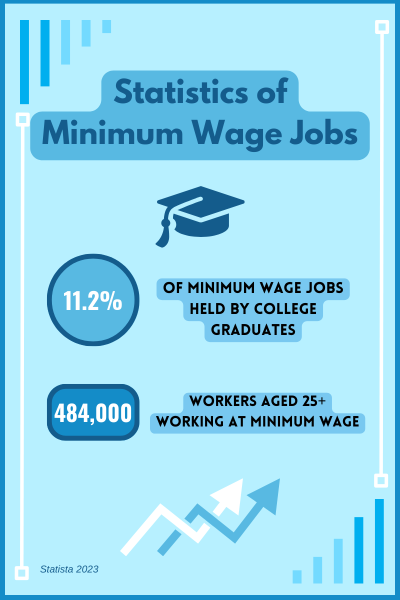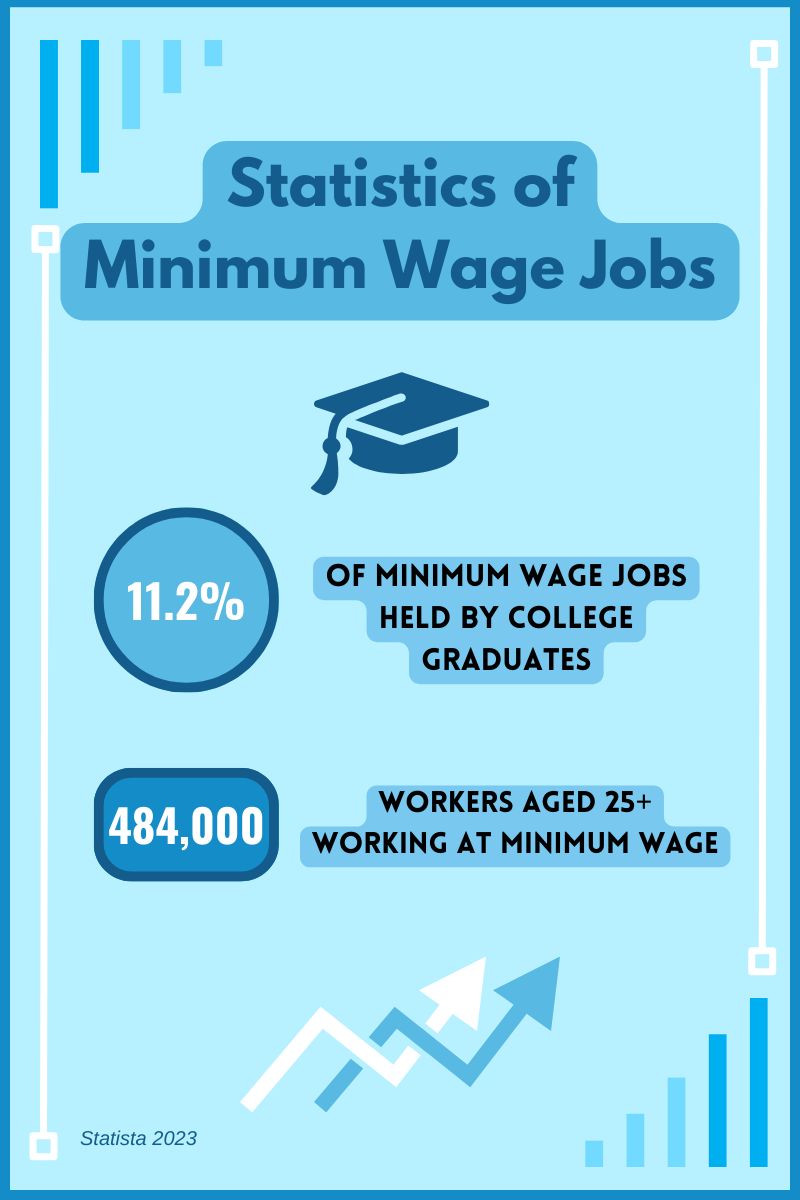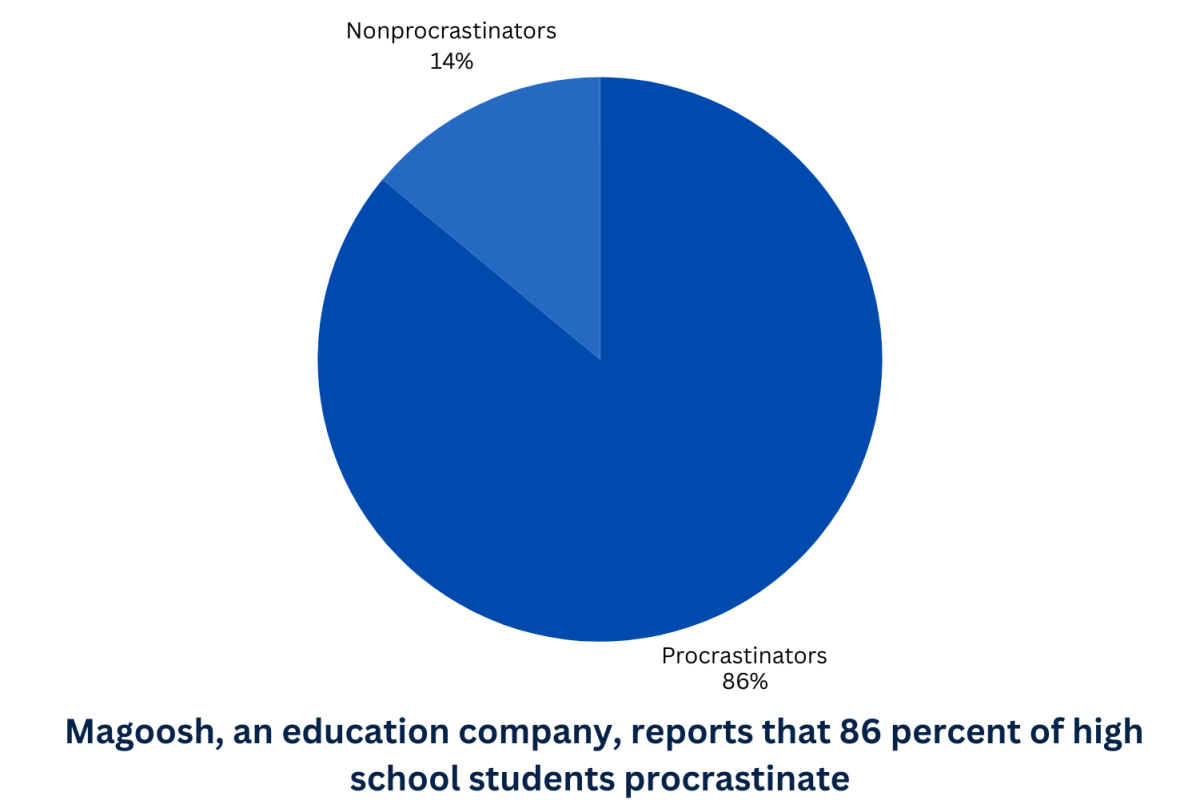Once upon a time, minimum-wage jobs were the domain of teenagers, eager to earn some pocket money to buy that jacket they’ve been eyeing while learning the value of work.
Fast forward to today: these positions are increasingly filled by college graduates – individuals with degrees and aspirations, yet struggling to secure employment in their chosen fields.
This troubling trend is not just an unfortunate side effect of economic conditions; it’s a reflection of a failing system that undervalues education and overcomplicates the job market.
The rising tide of college graduates in minimum-wage roles reveals a significant disconnect between higher education and the job market. Many graduates find themselves trapped in a cycle of underemployment, forced to take jobs far beneath their qualifications simply to make ends meet.
Why is this happening?
The blame lies squarely on several systemic failures: an oversaturated job market, the burden of student debt, and a lack of meaningful entry-level opportunities.

Degrees are supposed to be pathways to prosperity, yet the reality is starkly different. With so many people holding similar qualifications due to an expansion in access opportunities and education that’s much larger than the increase in scope of employment, the competition for a dwindling number of desirable jobs becomes fierce.
Employers often raise the bar, seeking years of experience for positions that once required none, effectively locking out bright, new talent and perpetuating the cycle of frustration.
This phenomenon isn’t just a personal crisis; it’s a societal one. The influx of educated workers into low-wage positions is indicative of a broader economic inequality. When skilled individuals are relegated to menial jobs, it chips away at the middle class and exacerbates the wealth gap.
We’re witnessing a scenario where hard work and education no longer guarantee economic stability. Instead, they often lead to an endless game of survival, with many graduates resorting to multiple minimum-wage jobs just to make ends meet.
To address this issue, we must confront the policy failures that have led us here. First and foremost, it’s essential to advocate for living wages. While service jobs were not originally intended to be a means of living income, it’s now a reality for many people. No one should have to choose between paying rent and affording groceries.
By raising the minimum wage to a level that reflects the cost of living, we can begin to alleviate some of the financial pressure on low-income workers, including those with degrees.
Additionally, we need to rethink how we define “entry-level” positions. Employers must recognize that fresh graduates bring valuable skills and perspectives, and they should adjust their hiring criteria accordingly. Job descriptions should be stripped of unnecessary requirements that discourage capable candidates from applying.
Moreover, there should be a stronger emphasis on vocational training and apprenticeships. Not every graduate needs to follow the traditional four-year college route. By providing alternative pathways that lead directly to employment in skilled trades and industries, we can diversify the job market and reduce the burden of student debt.
The current state of minimum-wage jobs reflects a troubling reality: our economy is failing to support the very people it needs to thrive. It’s time for policymakers, businesses, and society as a whole to take action. By valuing education, advocating for living wages, and creating meaningful job opportunities, we can begin to dismantle the barriers that keep capable individuals trapped in low-wage roles.
The future of our economy – and the dignity of work – depends on it. Let’s not just talk about change; let’s demand it.








